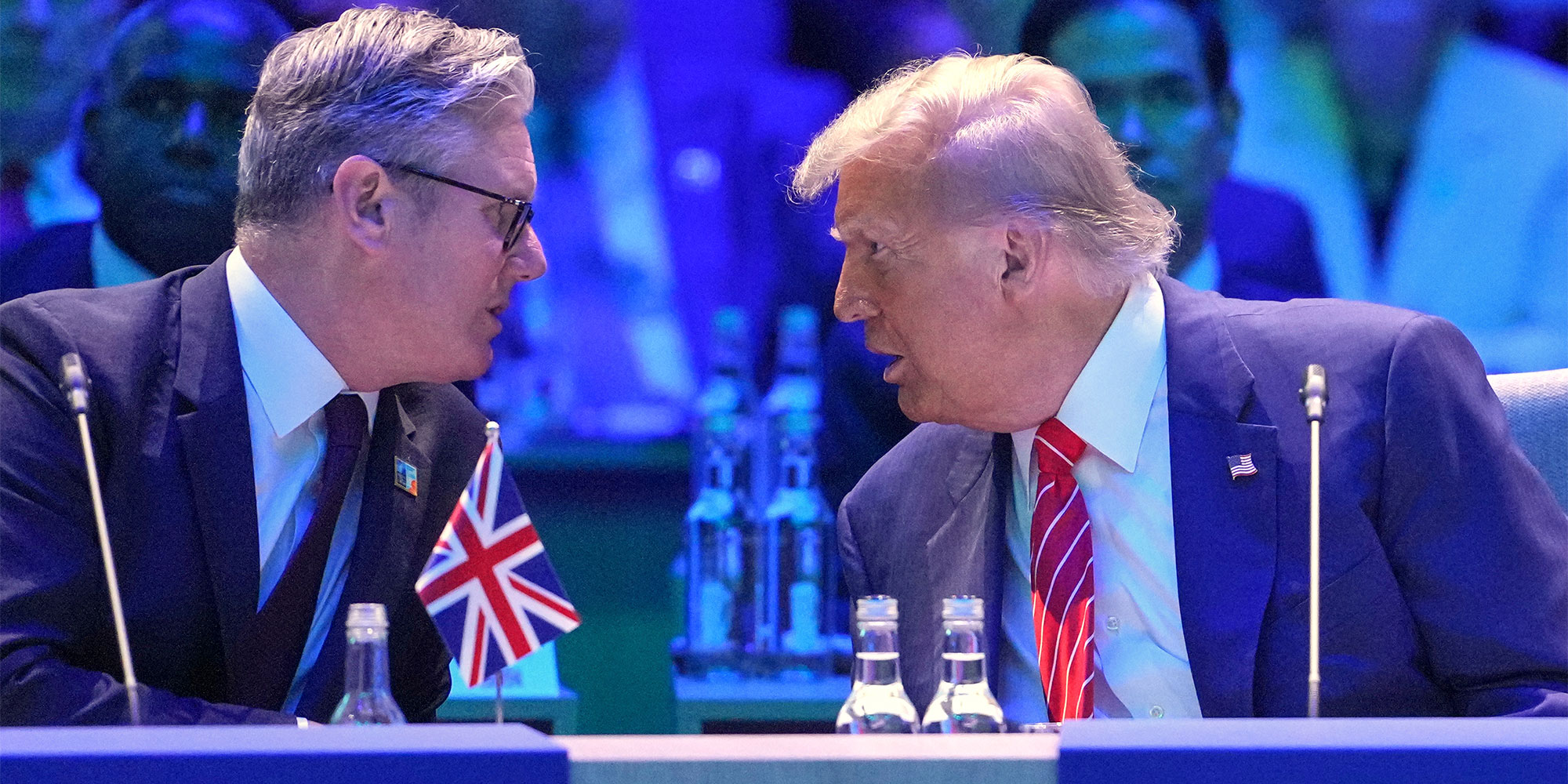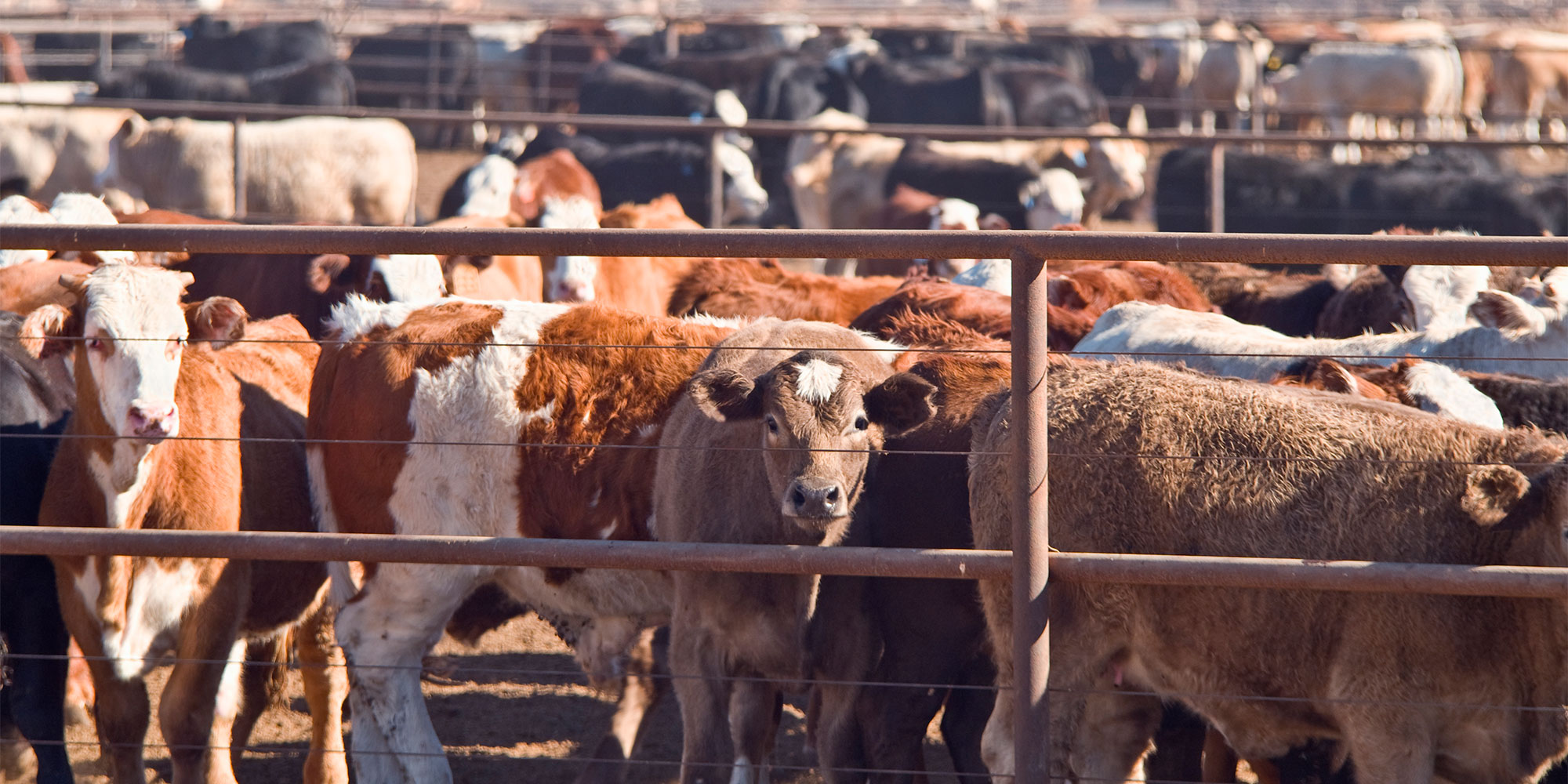
Healthy living
Use our expert advice and recommendations to live your best life every day.
Get started
Earlier this year, the US and UK agreed on a new trade deal on goods, including UK beef.
Additionally, the UK and EU are negotiating an SPS (Sanitary and Phytosanitary Measures) agreement, which will align the UK with EU food standards and agri-food laws.
But what do these deals actually mean for shoppers? We take a look at how they affect UK consumers, and answer your questions on whether they will impact the quality of food in UK supermarkets.
Eat well, live better, stay healthy – sign up for our free monthly Food & Health newsletter for all the latest insights delivered straight to your inbox
The UK and the US agreed a reciprocal tariff deal - the Economic Prosperity Deal (EPD) - in May, with a blanket 10% tariff on UK imports to the US and concessions on steel, aluminium and the automotive industry.
In addition, the UK agreed to concessions on ethanol and beef. Although the UK and US already receive beef from each other, the trade deal means the quantities and tariffs have changed:
The UK and EU also recently agreed to a 'reset' in their relationship, with the SPS agreement at the heart of it, and this has significant implications for agriculture and trade, including chicken and other agri-food products.
The reset involves the UK committing to 'dynamically align' with the EU on issues including food safety and consumer protection, so that when the EU makes changes to rules such as food laws, the UK will have to broadly follow.
As well as reiterating the EU and UK ban on the import of chlorinated chicken, the SPS agreement also removes red tape for the export of UK chicken and poultry products to the EU, to help boost the industry.
Although it's still under negotiation, with details to be worked out, it's been agreed in principle.
It has been argued that potential benefits to UK consumers from the influx of American beef could include more choice (for example, the availability of different cuts of meat) and potentially lower prices. A more predictable pathway for beef to be exported to the US could also benefit the UK economy by making it more financially beneficial for British producers.
However, there are concerns from the NFU (National Farmers Union) that this could push down prices for UK cattle and squeeze margins for UK beef farmers - something it says has already happened from a surge in Australian and New Zealand imports last year.
Another concern is if the US focuses on sending high-value, premium cuts such as sirloins and fillet steaks to the UK, it will make it a more crowded market for UK producers that use high-end cuts to make a profit.
When it comes to the SPS arrangement, consumers should benefit from lower food prices as savings are passed on by businesses whose costs are reduced by the removal of 'red tape', plus greater choice and availability.
Decoding food labels: sustainability, welfare and food safety - the certification schemes on food packaging and what they mean

No. The UK government has been clear that existing food standards - including a ban on hormone-treated beef - is a strict 'red line' for the UK.
The ban on hormone-treated beef in the UK has been in place since 1989, and the new deal with the US doesn't alter this.
The Department for Business and Trade's General Terms for the EPD, which outlines the trade deal, says that 'imported food and agricultural goods must comply with the importing country's sanitary and phytosanitary (SPS) standards' and for the UK this includes the existing ban on hormone-treated beef.
No. The trade deal with the US doesn't include chicken imports, and specifically chlorinated chicken.
When the UK-US trade deal was being thrashed out, the government stressed that UK food standards wouldn't be compromised, and chicken was deliberately excluded to ensure the UK's existing food safety and animal welfare standards were maintained.
Closer alignment with the EU through the upcoming SPS deal significantly influences the UK's position when it comes to agricultural trade - and that includes the 'red line' of chlorinated chicken, which is banned by both the UK and the EU.
The UK and EU operate a 'farm to fork' approach, where high hygiene and animal welfare standards are expected from the very start of the production process, rather than relying on chemical washes to kill pathogens at the slaughterhouse.

Use our expert advice and recommendations to live your best life every day.
Get startedOverall, the deals should reassure consumers. The SPS deal will further cement the EU's high food standards that the UK is already committed to.
Sue Davies, Which? head of food policy, says:
'Because we have agreed to dynamically align with EU standards, that will impact on our flexibility to concede to any US demands for a relaxation of standards.
‘It's good to see the UK and EU agree to prioritise tackling frictions over food trade, and cooperation on safety and economic growth, which should help to maintain consumer choice and ultimately ease the burden of high food prices.
‘The government must maintain the ability to ensure that food regulation meets the needs of UK consumers - whether in relation to food safety or vital measures needed to support healthier choices and tackle obesity.’
Compliance of all imports will be ensured by the use of UK border checks and certification processes. However, policing this - including verifying that every shipment of US beef is genuinely hormone-free throughout its lifespan - may be a challenge.
How bad is ultra-processed food? UPFs have been linked with negative health outcomes but some can have a place in a healthy diet
The UK-US EPD trade deal includes immediate tariff changes but it's also a starting point for further discussions between the UK and the US, which theoretically means it's possible that other agri-food products could follow in future.
For example, the current trade deal doesn't include pork, but US officials have indicated that it's something they will want to address in future trade discussions.